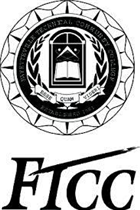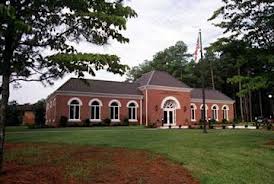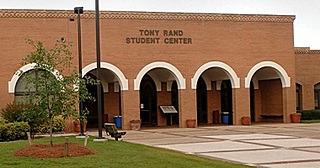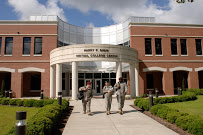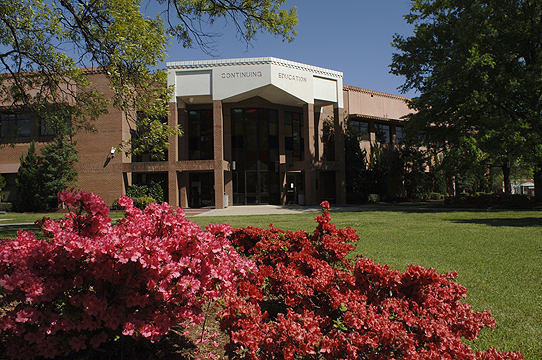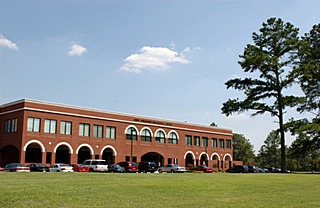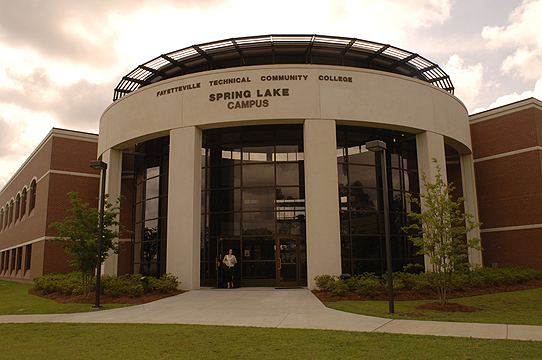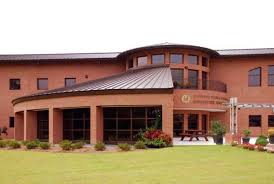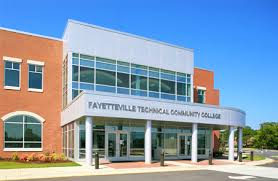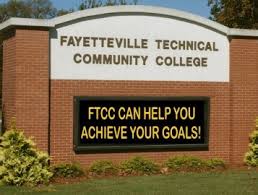
 |
|---|
The institution evaluates success with respect to student achievement consistent with its mission. Criteria may include enrollment data; retention, graduation, course completion, and job placement rates; state licensing examinations; student portfolios; or other means of demonstrating student achievement. (Student achievement)
| ____ Non-Compliance |
|---|
Summary
Fayetteville Technical Community College (FTCC) is in compliance with this federal requirement as demonstrated by student achievement evaluations related to the College’s mission in the areas of course completion, state licensing examinations, and job placement rates. The North Carolina Community College System (NCCCS) Performance Measures for Student Success Annual Report shows evidence of student success related to the performance measures and standards.
Narrative
FTCC's Mission Statement is defined and published in the College Catalog (pg. 7), Student Handbook (pg. 7), and on the College's Website.
FTCC evaluates student achievement according to the requirements of the North Carolina Community College System (NCCCS) Performance Measures and Standards. The NCCCS Performance Measures for Student Success, instituted for the 58-system community colleges, are considered to be the core indicators of student success within North Carolina Community Colleges. FTCC reports its information annually as an accountability measure to the Board of Trustees (pg. 4).
In addition to the website, students, faculty, staff, and advisory committees can review the student achievement information in the FTCC Catalog (pg. 11) and in the FTCC Fact Book (pg. 90). NCCCS publishes the student success measures for each community college in the annual statewide report (pg. 2). Course completion, performance on licensure examinations, and passing rates within pre-curricular courses are three of the eight NCCCS performance measures. Student achievement results are analyzed by faculty and administrators during the annual program review process. Academic departments use this data to supplement other assessment criteria as reflected in the department’s annual assessment processes maintained in WeaveOnline® Management Assessment System.
The Office of Institutional Effectiveness regularly provides professional development training for faculty, staff, and administrators on understanding and use of the NCCCS Performance Measures for student success. These professional development classes assure new employees are oriented into use of information as they work with their students.
Consideration of Course Completion
FTCC monitors course completion rates by tracking the success of students who have completed pre-curricular courses and have earned a grade of “C” or better in their first curricular English and mathematics courses. This is measured by NCCCS and is reported on an annual basis. The current NCCCS report (pg. 14) reflects FTCC is above the baseline requirements. Additionally, the grade distribution report tracks the percentage of students that are retained and successfully complete curriculum courses. The course retention and completion data is used to improve pedagogy and/or implement strategies to improve the success of students in curriculum courses.
The curriculum graduation, retention, and transfer rates for all students are closely monitored. Each of these factors is individually assessed, studied, and reported as part of the program review process. Department faculty initiate action plans, if necessary, for future improvements based upon this analysis. Additionally, academic departments conduct an in-depth annual assessment plan of student learning outcomes that are tied to these factors. Success is demonstrated through the Integrated Post-Secondary Education Data System (IPEDS) Feedback Report reflecting FTCC is comparable with colleges and universities of similar size across the United States. FTCC assists students in transferring to four-year colleges and universities through a large number of academic agreements that are reviewed annually to maintain currency and accuracy.
Enrollment Data
FTCC tracks enrollment data annually and analyzes trend data in five-year increments. This data is critical in the advancement of the College. The data (pg. 41) includes the unduplicated headcount in educational programs, Full-Time Equivalent (FTE) enrollment in educational programs, as well as student profile enrollment data for educational programs. This data is essential in building an effective strategy for increasing enrollment through marketing and recruitment. By analyzing enrollment data, the College is able to produce strategies that are more targeted in recruiting specific student populations and promoting specific academic programs of study.
Success on Licensure Examinations
NCCCS annually reports licensure success rates for all 58 community colleges for licensure and certification exams taken for the first time during the licensure agency’s most recent reporting year. The current aggregate NCCCS report (pg. 19) reflects FTCC is above the baseline requirements. To continuously improve, the program faculty and staff develop action plans, if necessary, to improve student licensure passing rates. This plan is included as a measurable outcome for the department’s assessment plan during the upcoming assessment cycle. FTCC monitors these assessment plans on an annual basis and analyzes improvements throughout the action plan period.
Job Placement
The College compiles an annual Job Placement Report documenting graduates’ success in securing employment within six months post-graduation. The report is presented to the Board of Trustees annually and provided to the general public through the FTCC Fact Book (pg. 93). The Job Placement Report assesses individual graduate information that includes employers, geographic locations, employment in their field of study, and initial salaries. This data is also integrated into FTCC’s annual program review process. FTCC job placement rates have steadily increased from 81.0% to 93.7% during the last five years.
Student Portfolios
Portfolios are used in select programs to assist students in demonstrating program competencies and for use when seeking employment. The portfolio process begins when students enter their respective programs and is built upon throughout their course of study. The process is completed, and the portfolio is presented during the capstone course.
Other Resources Available To Students
The JOBS Center provides assistance to students and alumni on interviewing skill techniques, résumé preparation and other employment seeking services. The Center maintains contact with prospective employers and posts their job openings to assist FTCC graduates. Instructors include job seeking skills in their courses.
The University Outreach Office coordinates annual College Transfer Days with four-year colleges and universities. Transfer assistance services are offered to FTCC students throughout their enrollment with the College and post-graduation.
The Work-Based Learning staff assists students with opportunities to apply classroom learning in paid or non-paid employment placement. The program provides students hands-on job experience often leading to employment opportunities upon graduation.
